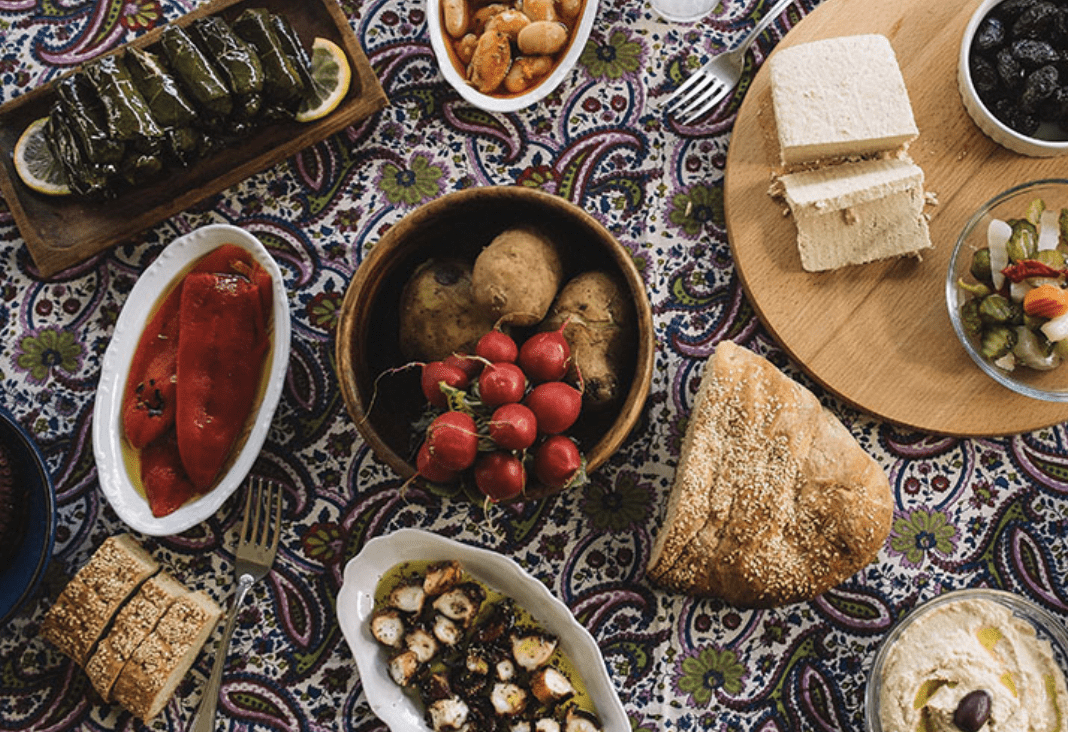
Exploring Greece’s Easter and Lenten Traditions through Food
Do you want to experience Greek holidays at their finest? Do you have dietary needs related to veganism, vegetarianism, or even pescatarianism and are wondering if there’s a best time to book your adventure in Greece? Maybe you’re religious or spiritual and want to experience traditions outside your own. If you said yes to any of these, consider enrolling with CYA for their spring semester! I am currently a spring semester student at CYA, but I will miss the celebrations due to having to travel back home in face of the COVID-19 crisis. Wanting to learn about the Greek traditions during this time I spoke with CYA exec. Director of Student Affairs Nadia Meliniotis, and I’m excited to share with you what fascinates me with this season in Greece.

Carnival celebration in Patras
One of the highlights lasting most of the spring semester are the many weekends of carnival leading up to the fasting period of Lent, and with the grand finale: Orthodox Greek Easter!
You may see many kids dressing up and parading around for the carnival weekends, similar to the American Halloween. You will also see plenty of parties and confetti in the streets! Some of the islands host wonderful weekend getaways to experience carnival at its most colorful. Of course, Greece also hosts diversity in its celebrations and not every region and island celebrate carnival, Lent, and Easter the same. I asked Nadia her opinions on the best places around Greece to visit for Greek Easter: “There are sooo many!…My favorite places are Corfu, Crete, Meteora and Monemvasia.” Some of Nadia’s favorite traditions during Lent and Greek Easter are, “Palm Sunday [where] the tradition is to eat fish! My favorite dishes [to eat during Lent] are lentils and rice, stuffed tomatoes and eggplants!”

“Gemista”
Speaking of food — a significant part of culture no matter where you are in the world — there are some special traditions surrounding Lent, the period of fasting for 40 days leading up to Greek Easter. Most Greeks follow the Orthodox Christian belief system, while many identify as atheist, part of some other religion, or spiritual. No matter your belief system, all are welcome to participate in Lent. Even those who are very devout Orthodox don’t always follow the Lenten fasting guidelines. Nadia affirms the range of practices considering, “a few fast only during the Holy Week and many only Good Friday.” Nadia herself primarily follows a pescatarian diet during the year, and abstains from eating dairy products during Lent.
According to Lent traditions, one is supposed to abstain from eating all byproducts and animals with blood. This includes fish, cows, chicken, pigs, lamb, turkey, eggs, dairy, etc. Alcohol and olive oil are to be avoided as well. What is left is a diet high in plant foods such as pulses, cereals, vegetables, fruits, nuts and seeds. To my vegan friends, this may sound like a food paradise! While you may get far fewer odd looks when you explain that you don’t eat meat, dairy, eggs and seafood (“Den tróo kréas, galaktokomiká, avgá kai thalassiná”), and you may be able to find more vegan options during this time, “Restaurants cannot abstain from serving meat because we have people who are not Greek Orthodox, visitors, etc.” During Lent, one is also allowed to eat seafood such as “[squid], octopus, shrimp, etc., because they have no blood.”
While many vegans, vegetarians, and pescatarians alike may find this period a food sanctuary, it is a period to be respected as a religious time nonetheless. Abstaining from consuming most animals and their byproducts remains rooted in religious traditions, and does not feed into the global veganism/vagatarianism/plant based global movement.
Why fast at all? According to our resident expert consultant for this article, Nadia, “This goes back to Judaeo Christians and then to Byzantium. It was a taboo for the Jewish people to eat meat and consequently red blood…The rational behind this strict fasting period is that the body must be cleansed as well as the spirit in preparation for accepting communion on Easter Day to celebrate Christ’s resurrection from the dead. The meaning of fasting is also for the Orthodox Christians to obey God and to fight against the devil.”
The Carnival weekends, Lent, and Greek Orthodox Easter are amazing experiences to take part in. However, no matter what time of year you visit Greece, there are always and abundance of vegan, vegetarian, and pescatarian options available at Tavernas, cafés, bakeries and beyond. Don’t be afraid to ask and specify your dietary needs. Greeks are always very kind and ready to accommodate as best they can!






